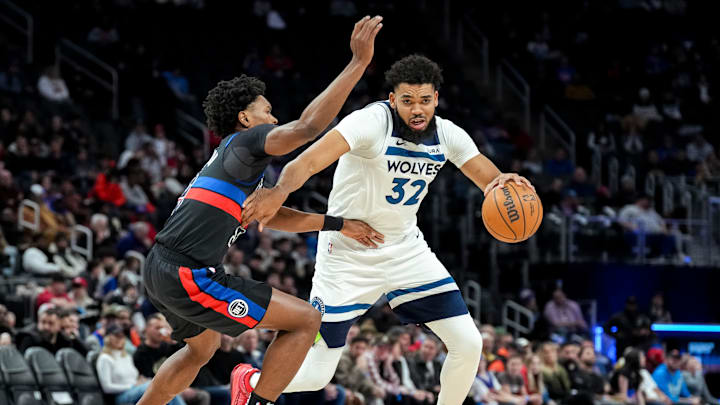Today is media day for the Detroit Pistons and training camp will start tomorrow, so the 2024-25 season is officially underway.
With less than a month to go before the start of the regular season, it was somewhat surprising to see a blockbuster trade between the New York Knicks and Minnesota Timberwolves that sent KAT to NY in exchange for Julius Randle, Donte DiVincenzo and a first-round pick.
Knicks have acquired Karl-Anthony Towns from Minnesota for Julius Randle, Donte DiVincenzo and a first-round pick via Detroit, sources tell me and @JonKrawczynski. pic.twitter.com/FafQlY48Y1
— Shams Charania (@ShamsCharania) September 28, 2024
Both teams got rid of a contract they didn’t want, the T’Wolves save some money and the Knicks get a more dynamic center.
The trade not only shows some of the effects of the new CBA, but will have ramifications for the Detroit Pistons in several ways.
Knicks and Timberwolves trade: Team building under the new CBA
The new collective bargaining agreement raised salaries for those at the top and made going into the luxury tax more punitive, two things that will have a radical effect on team building in the NBA.
The cheaper billionaires who are not willing to pay the tax every year will likely end up doing what Minnesota and Denver did this offseason. The T’Wolves traded away one of their biggest contracts rather than give up role players like Naz Reid and Nickeil Alexander-Walker, while the Nuggets did the opposite, which was let role player Kentavious Caldwell-Pope walk so that they could keep their core of high-paid stars, sacrifiicing depth in the process.
We are also seeing mid-level guys like Markelle Fultz unable to find jobs, as teams would rather give out a couple of max deals and then populate the rest of their roster with minimum guys.
Is this good for the league? I am not so sure. On one hand, it should spread the talent around a little more and add to parity. On the other, it makes it much more difficult to navigate long-term team building unless the owner is willing to go into the luxury tax. If you want to keep all of your guys, and they are all on their second or third contracts, it’s going to cost you.
Will this have the intended effect or just prevent the mid and small-market teams from being able to build a sustainable championship contender? We shall see.
This trade also had ripple effects for the Detroit Pistons.
